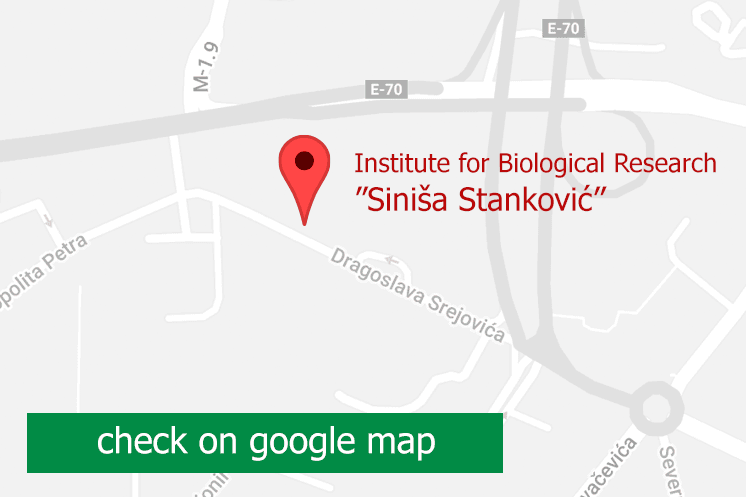
Dr. Tamara Krajnović
Research Associate
Dr. Tamara Krajnović
Tamara Krajnović has been working in the Department of Immunology since 2014. She obtained her MSc degree in Molecular Biology and Physiology at the Faculty of Biology, University of Belgrade in 2013. In 2021, she obtained a Ph.D. in Biology at the same faculty. In the same year, she was awarded by the "Goran Ljubijankić" Foundation for the best doctoral thesis in the field of molecular biology. As an exchange student within the framework of three bilateral DAAD projects with Germany (2014-2018), she spent one month each year at the Leibniz Institute of Plant Biochemistry, Martin-Luther University, Halle. As part of the Erasmus+ international credit mobility for higher education students and staff, she stayed at the Saxon Incubator for Clinical Translation, Leipzig University in 2018. She participated in a national project (2014-2019), a bilateral project with the Republic of China (2018-2021) and three projects with industry (2019-2023). She is the coordinator of the work package of the ADVANCED project funded by the Prisma program of the Science Fund of the Republic of Serbia (2024-2027). She is an active member of Serbian Association for Cancer Research (SDIR), European Association for Cancer Research (EARC), Serbian Society for Molecular Biology (MolBioS), Immunological Society of Serbia (ISoS), European Federation of Immunological Societies (EFIS), Club of Serbian Young Immunologists (KMIS), Young European Federation of Immunological Societies (yEFIS), Serbian Society for Immunology, Molecular Oncology and Regenerative Medicine (SDIOR), Serbian Biochemical Society (SBS) and Serbian Society for Mitochondrial and Free Radical Physiology (SSMFRP). Her research interests concern the field of experimental oncology and tumor immunology, assesment of the efficacy of potential new therapeutics of natural and synthetic origin or their modifications in the treatment of various animal and human tumor and/or transformed cell lines in vitro or tumor animal models in vivo, investigating various aspects of immuno- and chemosensitization of malignant cells, studying the molecular mechanisms involved in cancer regulation and the signaling pathways mediating carcinogenesis, evaluating the antitumor potential of newly designed and modified forms of conventional chemotherapeutics, and application of nanotechnology in designing of novel therapeutic approaches.











